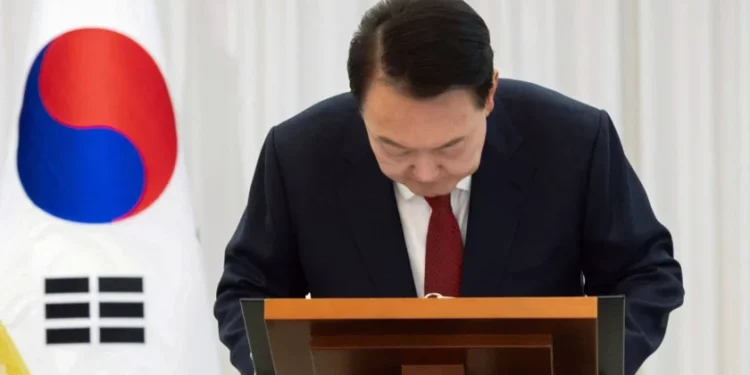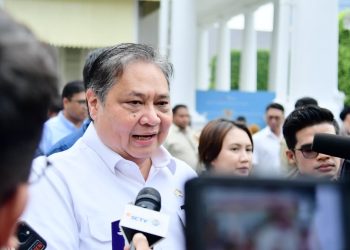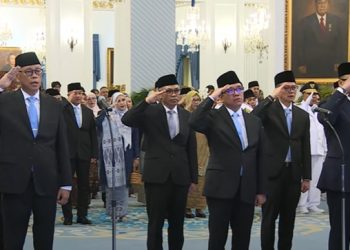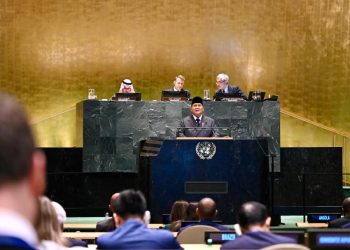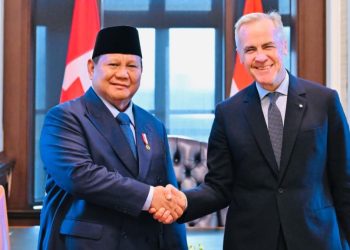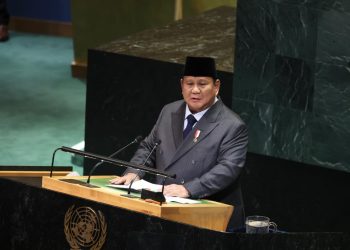Jakarta, Indonesia Sentinel — In a historic move, South Korea President Yoon Suk Yeol impeachted by Assembly voted overwhelmingly on December 14, 2024. Out of 300 lawmakers, 204 voted in favor, 85 against, 3 abstained, and 8 ballots were declared invalid. The motion suspends Yoon’s presidential powers and transfers them to Prime Minister Han Duck-soo, who will act as interim president.
National Assembly Speaker Woo Won-shik, announcing the results, emphasized the significance of the vote for the Korean people. “For the people, we hope this brings a little more happiness to the end of your year and that canceled year-end celebrations can now resume,” Woo said, as quoted by the BBC. “The future of the Republic of Korea and our hopes lie with the people. Thank you very much.”
What Happens Next?
The impeachment motion will now be reviewed by South Korea’s Constitutional Court, which has 180 days to decide whether to uphold the vote or overturn it. If the Court validates the impeachment, Yoon will be permanently removed from office, triggering a national election to select his successor within 60 days. If the motion is rejected, Yoon will resume his presidency immediately.
This political crisis emerged after President Yoon declared martial law briefly last week, a move that sparked public outrage and political backlash. While the martial law declaration was rescinded shortly afterward, it led to accusations of abuse of power and undermined his administration’s credibility. Calls for his resignation have since grown louder, even from within his political base.
Adding to the controversy, Yoon and several close allies are now under investigation for alleged insurrection tied to the martial law declaration. Travel bans have been imposed on key figures, further deepening the political chaos.
Opposition Calls It a ‘Victory for the People’
The Democratic Party, South Korea’s primary opposition force, celebrated the impeachment vote as a win for democracy. “Today’s impeachment is a major victory for the people,” said Park Chan-dae, the party’s floor leader. The opposition had accused Yoon of failing to uphold democratic principles and acting in ways that jeopardized the nation’s stability.
Yoon, who survived a prior impeachment attempt, has seen his approval ratings plummet in recent months amid rising public dissatisfaction with his leadership. Critics argue that his handling of domestic and foreign affairs has alienated many South Koreans, leading to increased political unrest.
Acting President Pledges Stability
As Yoon’s powers are suspended, Prime Minister Han Duck-soo will serve as acting president. In a statement following the impeachment vote, Han vowed to steer the government through this uncertain period with stability. “My heart feels heavy,” he said, acknowledging the challenges ahead. “I will do my best to ensure governance remains steady during this time.”
While the impeachment process unfolds, South Korea remains in a state of political limbo. The Constitutional Court’s decision will determine whether Yoon’s presidency ends prematurely or if he regains control of the government.
1,162 Indonesian Citizens Unaccounted in Syria Amid Rising Conflict
A Nation on Edge
This is not the first time South Korea has faced a presidential impeachment. In 2017, President Park Geun-hye was removed from office after a corruption scandal, setting a precedent for the current situation. For many South Koreans, Yoon’s impeachment represents a test of the nation’s democratic institutions.
The Constitutional Court’s ruling, expected within the next six months, will have significant implications for South Korea’s political stability. In the meantime, the nation awaits its next chapter in a story that continues to unfold with high stakes and uncertainty.
(Becky)


